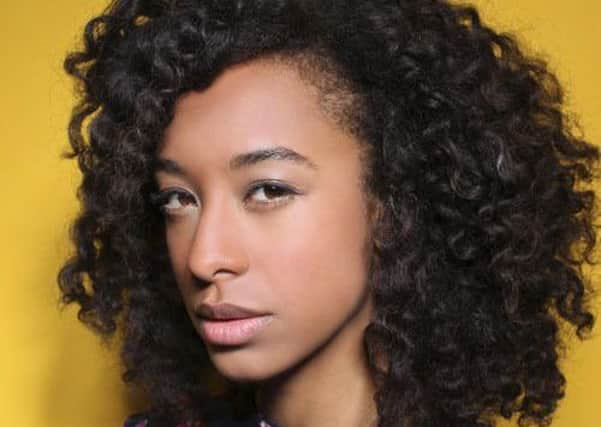Corinne Bailey Rae: Why I felt awkward growing up black in Britain


It’s been a little over 12 months since Corinne Bailey Rae returned from a six-year hiatus with her third studio album The Heart Speaks In Whispers. Since its release, the Leeds-born singer-songwriter has embarked on an arduous touring schedule covering almost every inch of the globe.
“I hadn’t played for a while and after making a record you can feel really insular,” she says down the phone from across the Atlantic, having just finished a series of US dates. “To go back out and play for people was really amazing and I had this new phase where 18 and 19-year-olds were coming to the shows because they had been fans since the first record when they were just kids.”
Advertisement
Hide AdAdvertisement
Hide AdIt’s e11 years since Bailey Rae first shot to fame and the considered 38-year-old has been through a lot since. In 2008, midway through recording The Sea, her husband, saxophonist Jason Rae, died from an accidental methadone and alcohol overdose. She remarried in 2013, wedding collaborator and friend Steve Brown, but remains naturally guarded.
“All the changes you go through personally really affect the music you make and my music on the one hand is personal and the other it comes from my lived experience and the interaction with the world around me,” she says.
When she returned to performing with the latest album, Bailey Rae decided to hold meet and greets before shows. It was here she first noticed the abundance of young black girls coming to see her.
“It was such a buzz to hear their stories about me; how they got into the music, what it meant to them over the years. I saw tons of young black girls who really got the message of Put Your Records On which is specifically a message for black girls about self-love and embracing your natural hair.”
Advertisement
Hide AdAdvertisement
Hide AdIt’s a message she’s keen to continue promoting, notably during an appearance at London’s Afropunk Festival later this month, which is a chance for Britain’s black artists to demand more mainstream attention.
“We have been building up a presence since the 80s and that is symptomatic from something like the Mobos, where they were once for those outside of the mainstream but right now those artists winning Mobos are also popping up at the Brits, the Grammys and the Mercury. That said, the Mobos are still important because they continue to recognise black work even when it falls out of favour with the mainstream which obviously does happen,” she warns.
Turning reflective, she describes her own experience growing up a black woman in Yorkshire as “different and awkward”.
“But I’ve realised that I wasn’t alone and I’ve been allowed to join my voice with other people who share that and it makes it a really positive experience.”
Advertisement
Hide AdAdvertisement
Hide AdShe spent some of her time touring the US during last year’s presidential election and has just completed a run of dates down the West Coast. There was a stark difference between black and white dominated communities in the surprise at Donald Trump’s election, she says.
“Most of the black communities weren’t really shocked when Trump got in as much as the other communities were. In the US there isn’t empathy for the poor or dispossessed or people who struggle or people with mental health or health problems.”
Perhaps surprisingly, it was in South Korea where ancient culture meets high-tech capitalism where Bailey Rae felt most at home. Another highlight was performing at a jazz festival in China where the genre has only been legal since the 90s.
“It felt like the rebellious music that it is,” she says, adding: “Punk and jazz are the opposite ends of the same spectrum because they are both looking for freedom and they give musicians the right to take music in their own directions. It’s not asking for permission, it’s inventing a new space.”